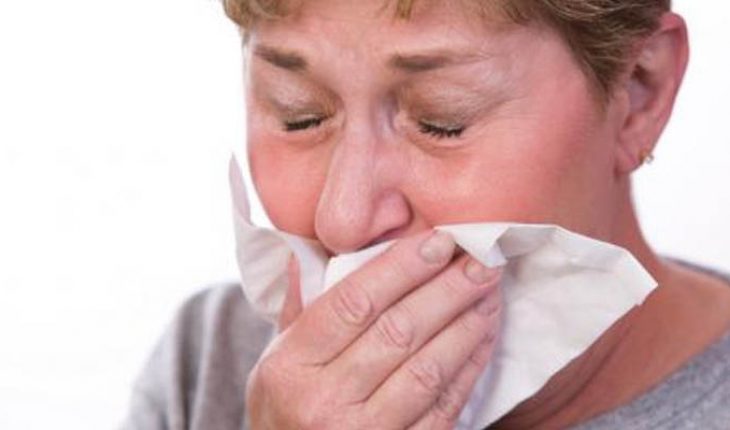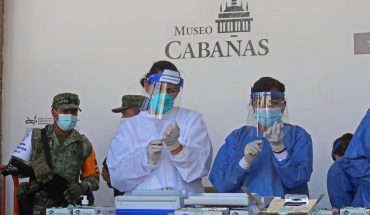Mexico.- This year marks 100 years of universal TB immunization with the BCG vaccine, the most widely used in high-incidence countries. Carlos Martín, researcher at the University of Zaragoza, leads the development of a new prophylactic injection, MTBVAC, which advances as a more effective alternative candidate.
Nearly 4,000 people die every day from tuberculosis, or what is the same, about one and a half million people a year. It is the most prevalent infection in the world and one of the top ten causes of death, although it is curable and preventable. Except last year with the onset of covid-19, in the last 200 years it has been the deadliest disease in the past 200 years.
Caused by Mycobacterium tuberculosis, a bacterium that almost always affects the lungs, its incidence is difficult to know: one in four inhabitants of the planet is considered infected and that 10% of them will develop pathology throughout life.
According to the World Health Organization (WHO), although most cases occur in low-income countries, it is present in all territories and age groups. In 2019, an estimated 10 million people worldwide fell ill: 5.6 million men, 3.2 million women and 1.2 million children.
MTBVAC is a genetically modified attenuated live vaccine derived from a clinical strain. In preclinical studies, it has shown that it provides greater protection against tuberculosis than BCG
The current vaccine to prevent tuberculosis, developed by Albert Calmette and Camile Guérin – whose initials take the name (BCG) of Calmette-Guérin – began to be used in humans in June 1921. It is a live attenuated vaccine, derived from the bacillus Mycobacterium bovis, an agent causing tuberculosis in bovids, which is given in the first days of birth. It is the most widely used: 90% of the world’s children are vaccinated with BCG.
However, it is also the most controversial, as although it protects against the most serious, disseminated or meningitis forms, its effectiveness against respiratory forms is variable. “As it does not protect against respiratory forms, TB figures will always be very high,” explains TO SINC Carlos Martín Montañés, researcher at the University of Zaragoza (Unizar) and group leader at CIBERES leading the development of an alternative vaccine.
This new TB vaccine candidate, called MTBVAC, is a genetically modified attenuated live vaccine derived from a clinical strain (i.e., a patient’s ingest). Preclinical studies have shown that it confers greater protection against tuberculosis than BCG.
Since 2008, the pharmaceutical company behind its industrial development is Biofabri. In 2012, phase 1 began in Switzerland that ended in adults, in 2015 phase 1 in newborns in South Africa and in September 2020 the phase 2a in adults also ended in the African country.
Why might the MTBVAC model be more beneficial than the current and centuries-old BCG vaccine?
We seek to have greater protection against the respiratory forms of tuberculosis. Last January we published the results of a macaque study showing how MTBVAC better protects BCG, that is, it recognizes the proteins missing from it.
Because BCG started from a strain of disease-causing bacillus in cows, it lacks essential genes for protection. In our model we start from a strain of tuberculosis isolated from a patient, which has all the antigens that are selected (lost) in the current one. It is unique in that regard, and the only one that could be an alternative to the BCG.
MTBVAC not only protects against respiratory tuberculosis, but against other diseases. We’ve seen in mice how it protects against bladder cancer, pneumococcal pneumonia and asthma
That’s right, our latest publications have seen that our vaccine has those same effects. Following the start of BCG administration 100 years ago, infant mortality decreased from 20% in un vaccinated to less than 2% in vaccinated people. But it wasn’t because of tuberculosis itself, but because it protected non-specificly against other infections, such as pneumonia. That’s why in all developing countries they have a lot of confidence in it.
MTBVAC not only protects against respiratory tuberculosis, but against other diseases. We have tested in mice how it protects against bladder cancer (this also happens with BCG, which in Spain is used for treatment because it gives a lot of cellular immunity), against pneumococcal pneumonia, and against asthma.
Do you also power other vaccines as with BCG?
In the countrys that vaccinate with BCG and diphtheria, tetanos and cough, ten times less cases of these three pathologies are recorded than when they do not vaccinate with BCG before. We assume that MTBVAC will also increase the immunity of other vaccines as studies in mice have shown, for both BCG and MTBVAC, how the diphtheria, tetanos and cough vaccine produces more antibodies.
Will your vaccine be effective against drug-resistant strains?
Yes, of course. Tuberculosis is a very smart disease that adapts perfectly. That’s why he’s been with us for 70, 000 years. It is now a treatable disease, although there are multi-resistant strains and there is a lot of fear that there will be a multi-resistant epidemic and antibiotics are not effective. Being of respiratory transmission, the moment we lose treatment can become a very serious pathology. That’s why the U.S. and Europe give money to keep investigating it.
Tuberculosis is a very smart disease that adapts perfectly. That’s why he’s been with us for 70, 000 years. It is now a treatable disease, although there are multi-resistant strains and there is a lot of fear that there will be an epidemic and antibiotics are not effective
Covid and tuberculosis: Is it possible that BCG has helped curb the pandemic?
This was much researched in the early months of covid-19 and we still don’t have all the information. What has been seen is that in countries with mandatory BCG vaccination they tend to have fewer cases. In fact, a study published in August concludes that this immunization offers some protection against respiratory infections.
Vaccination data for more than 100,000 BCG people who had covid-19 are currently being expected to see if they had any decreases in the disease. Anti-infection is known to not work, but results are being expected in health care and people over the age of 65 on whether they may have had any influence on producing less severe cases.
However, with the advent of specific coronavirus vaccines it is very difficult to fight drugs that protect in 95% of cases. What we need to do is show that TB vaccines protect against influenza, respiratory syncytial virus and pneumococcal. This could greatly help prevent respiratory infections in older people.
This is because the incidence is very low. That’s why the cost-benefit ratio isn’t that high. But we assume that, in the future, if we show that ours protects against tuberculosis and also against associated respiratory diseases, they are still vaccinated soon. This would be our dream.
In 1982, when I was studying medicine, it was thought to eradicate the disease by 2000. It’s 2021, and now there’s talk of getting it by 2050. An effective vaccine is essential to achieve this, but it is not the only condition. To help eradicate TB, good diagnosis and treatment is also needed.
However, if our vaccine works as we thought it would greatly help disease control systems. And it would be an impressive milestone, because at the moment, in 100 years there hasn’t been a vaccine that worked better than BCG. It would change the history of Vacunology.
translated from Spanish: The Spanish vaccine to prevent the disease is getting closer
March 25, 2021 |





